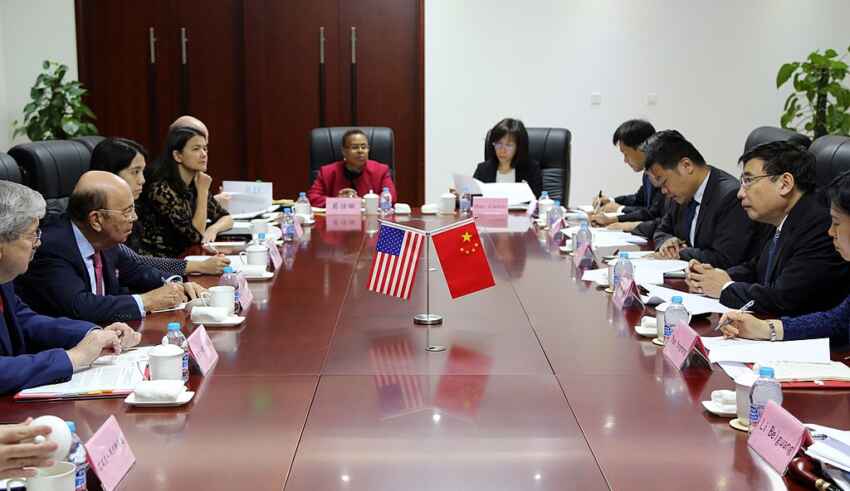
In just a few days, the global economic landscape has been significantly disrupted by escalating trade tensions among the United States, Canada, and the European Union: during his first presidential mandate, Trump already raised steel tariffs of 25%, a reform continued by former President Joe Biden, but with exceptions for US Allies, including Canada, Mexico, Japan and South Korea. Trump’s latest action reverses that, with no exceptions on any country’s steel and aluminium imports to the US, mainly based on the perception of trade imbalances and on enhancing domestic industries’ supremacy. But by doing so, it risks a global trade war on fundamental goods.
Trump administration justified these tariffs as necessary to counteract foreign metal exports that undermine domestic producers, describing them as a necessary measure to reclaim wealth lost through unfair international trade practices, mostly blaming the previous administrations’ incompetence.
The response from affected nations was variegated. On one side, Australia defined the recent tariffs rise as a form of economic self-harm, which will slow down economic growth while raising inflation, as such, Australia will not be imposing reciprocal tariffs on the US. Similarly, Mexico will not impose higher trade taxes for the moment, remaining open for a dialogue to find a solution. But on the other hand, the US saw an immediate backlash from Canada and the European Union.
Canada, a major supplier of steel and aluminium to the U.S., imposed tariffs on $20.6 billion worth of U.S. goods, including steel, aluminium, computers, and sports equipment (Buchwald, 2025). The EU has also announced countermeasures tariffs affecting up to $28 billion of American goods, harshly criticising the US President’s decision as it will disrupt supply chains and increase prices.
The imposition of these tariffs has raised concerns about a potential global trade war, with significant implications for international economic development, inflation, and diplomatic relations. Politically, the tensions have led to sharp exchanges between leaders. President Trump criticized the EU and Ireland for policies he claims have disadvantaged the US, particularly pointing to Ireland’s tax strategies that have attracted American companies. In response, Irish Premier emphasized the mutual benefits of US-Ireland economic relations, highlighting that companies like Ryanair purchase planes from US manufacturers, thereby supporting American economic growth.
Nonetheless, Trump’s obsession for raising domestic revenue could actually lead to the loss of 100,000 jobs, including 20,000 from the aluminium industry, as the CEO of Alcoa, one of the largest US aluminium makers, warned last month (Buchwald, 2025). As a significant share of its production is located in Canada, where it’s much cheaper to produce because of energy efficiencies there, he predicted that US companies like Alcoa might decide to reduce US activities to move to Canada, leading to the exact opposite effect Trump is aiming for.
The recent escalation in trade tensions among the U.S., Canada, and the EU underscores the fragile nature of international economic relations. While the intent behind tariffs may be to protect domestic industries, the broader consequences often include strained diplomatic ties, increased consumer prices, and market instability. Also, the economic warfare initiated by Trump will bring short-term victories on a national front, but in the long-term, it might disrupt the American economy, leading to inflation, a high unemployment rate, and eventually a possible economic collapse. As of today, US tariffs have been perceived as completely unjustified, unfair, and unreasonable, creating the basis for a trade war. If Canada and Europe already reacted, nations like Australia and Mexico are still hoping for a quick resolution that will promote once again trade without resorting to protectionist measures.
Resources:
- Buchwald E. (2025) Trump imposes sweeping 25% steel and aluminum tariffs. Canada and Europe swiftly retaliate, published by CNN, available at: Trump imposes sweeping 25% steel and aluminum tariffs. Canada and Europe swiftly retaliate | CNN Business
By The European Institute for International Relations














